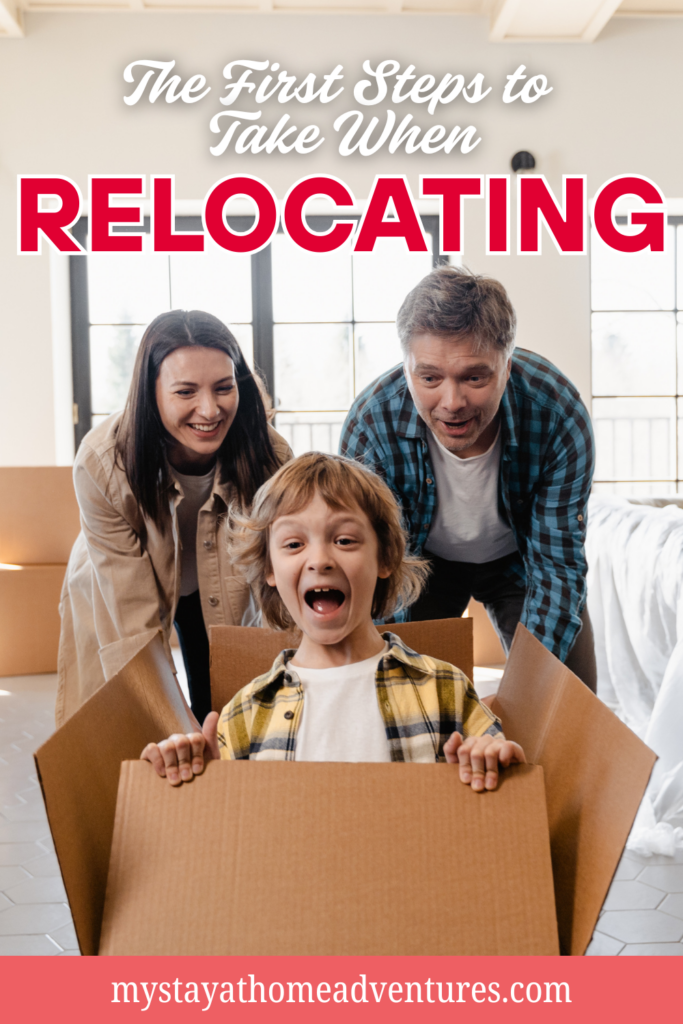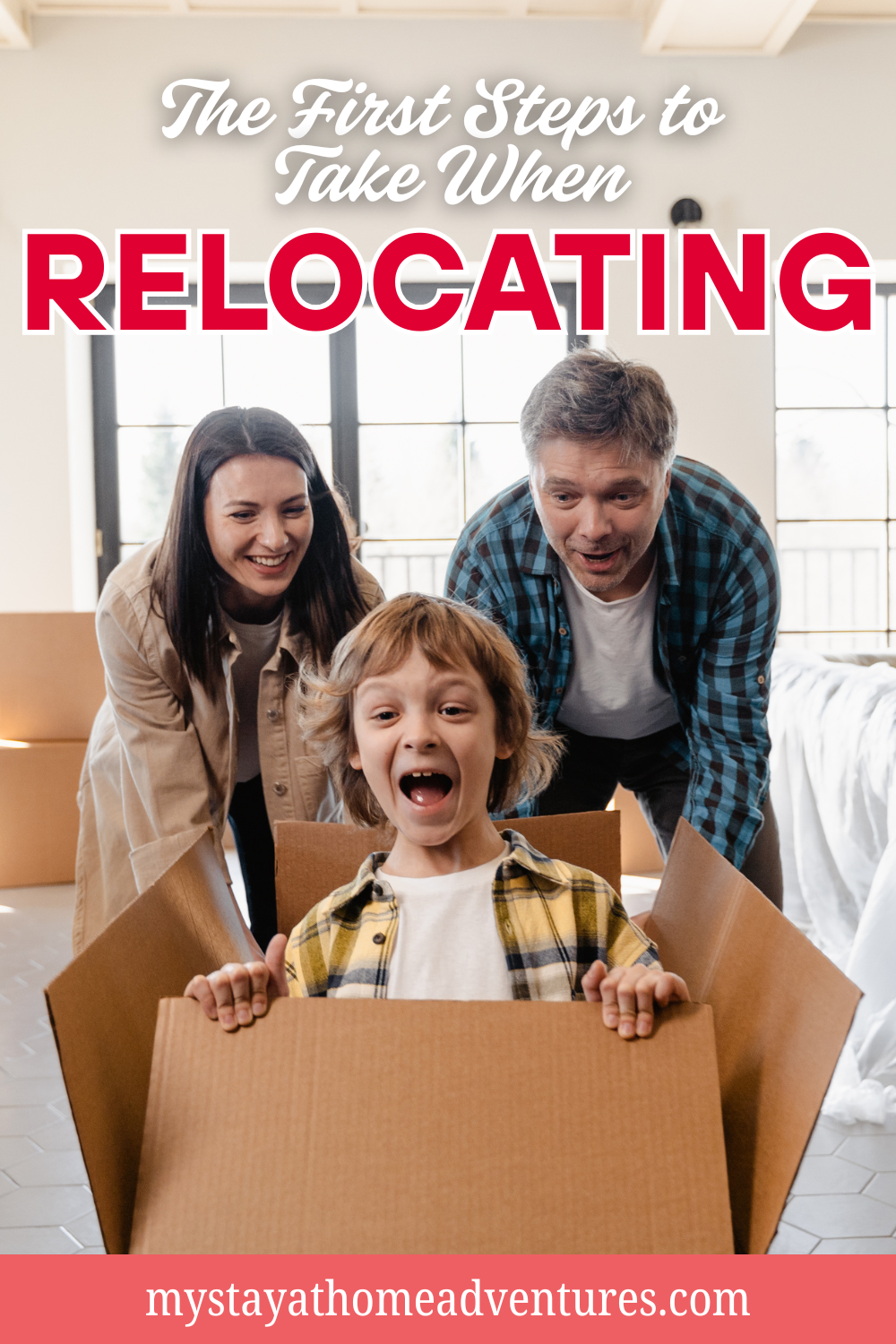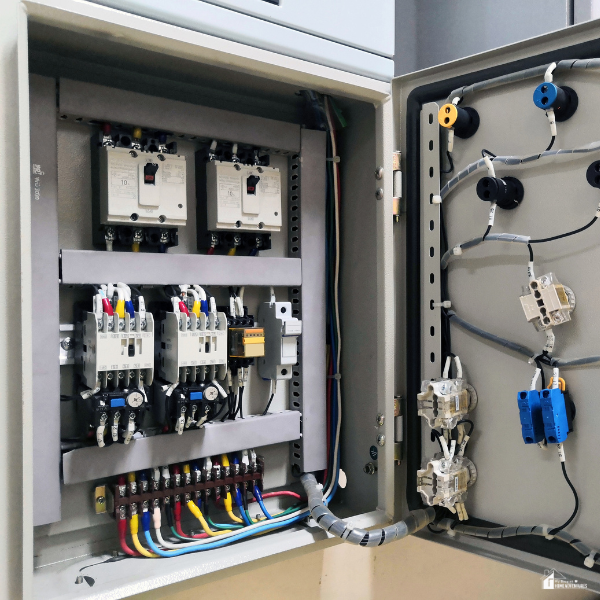The First Steps to Take When Relocating
This post may contain affiliate links which might earn us money. Please read my Disclosure and Privacy policies hereEver stood in your kitchen, surrounded by half-packed boxes and takeout containers, wondering how moving turned into such chaos so fast? You’re not alone. Whether you're moving for work, family, or just a change of scenery, that first step into the unknown often comes with more stress than excitement.
The to-do list grows by the minute. Your coffee maker is already packed. And somehow, the junk drawer has turned into a monster that refuses to go quietly.
Relocating isn’t just a physical move—it’s an emotional one too. You’re not only sorting your stuff. You’re untangling routines, leaving familiar faces, and bracing for all the unpredictability that comes with a new zip code.

And if you’re heading somewhere like Columbus, Ohio, where the real estate market is heating up and job opportunities are drawing newcomers, the pace of change can feel even faster.
The truth is, most of the stress doesn’t come from the move itself. It comes from not knowing where to start.
In this blog, we will share the most important first steps to take when relocating, how to reduce the chaos early on, and why careful planning can make the whole process feel less overwhelming and a lot more doable.
Start With the People Who Know the Drill
Before you obsess over which couch fits through which doorway, take a breath. One of the smartest early moves you can make is getting help from people who do this for a living. That’s where finding reliable Columbus movers can change everything.
A good team brings more than muscle—they bring peace of mind. And in a city with growing demand, availability can go quickly, so early booking makes a big difference.
Movers who know the area can help you avoid common headaches. They’ll know which apartment buildings need elevator reservations. They’ll know when traffic is worst and which permits are required for certain neighborhoods.
That kind of local know-how is worth more than just convenience—it saves you time, money, and last-minute panic. Even better? It frees up your brain to focus on everything else. And trust us, there’s plenty else.
Look Beyond the Boxes
Relocating isn’t just about packing things up. It’s about preparing your life for the shift. That means updating addresses, sorting through utilities, and scheduling cancelations and reconnections well in advance. Waiting too long on those can mean service gaps that make your first week in a new place feel even harder.
Think about how you use your current home. What will you need on Day One in the new one? Is it coffee? Wi-Fi? A clean bathroom with actual toilet paper? Create a “first-day” box filled with essentials so you’re not rummaging through ten boxes for your toothbrush at midnight.
And speaking of boxes—label them like your future sanity depends on it. Because it does. Be specific. “Kitchen – baking supplies” is better than “random stuff.” Future you will be grateful.
Sort, Toss, Repeat
One of the worst things you can do during a move is bring everything you own without asking whether you really want it. Relocation is a chance to reset. Use it. If something hasn’t been touched in a year and doesn’t spark even mild affection, let it go. Donate, sell, or recycle—just don’t pack regret into every box.
Think in categories. Clothes you no longer wear. Cables you no longer recognize. Furniture that never really fit the space. Lightening your load doesn’t just make the move easier—it makes the arrival feel cleaner and more intentional.
This process also gives you time to consider your new layout. Do you want to start fresh with a different vibe? Fewer items make that flexibility possible. And when you're staring at a blank room, you'll be glad you left the extra stuff behind.

Handle Documents Like a Pro
Relocating means a mountain of paperwork. Make a folder (digital or physical) that holds everything in one place. Lease agreements, contracts, receipts, school records, pet vaccination info—it all adds up fast.
Having it handy reduces stress when things inevitably go sideways. Can’t find the confirmation email for your electricity setup? Check the folder. Need to prove to your new landlord that your pet is vaccinated? Check the folder.
If you're moving for a job, make sure you understand relocation benefits, tax implications, or reimbursement paperwork. Some companies offer perks—but only if you document everything from Day One.
Brace for the Emotional Curveball
People often talk about moving in terms of logistics. But the emotional side is just as real. Even when you’re excited, leaving a place behind can hit unexpectedly hard. You’re not just changing addresses. You’re leaving routines, memories, and parts of your identity tied to the old space.
Allow room for mixed feelings. Say goodbye properly—even if it’s just a solo moment in an empty room, thanking the space for what it held. Let yourself feel weird about the change. Then, remind yourself that growth often starts with a little discomfort.
Creating a new home doesn’t mean erasing the old one. It means building something new on top of what you've already experienced. That’s not a loss. That’s expansion.
Know That Settling In Takes Time
Here’s the part no one tells you: your new place won’t feel like “home” right away. It might smell different. Sounds different. Feel a little hollow. That’s normal.
Home isn’t just a space. It’s a rhythm. And rhythms take time to build. So give yourself grace. Unpack slowly. Explore without pressure. Introduce yourself to neighbors when it feels natural. Find one or two cozy spots—a window with good light, a corner for your favorite chair—and make those feel right first.
The rest will follow. Because no matter how hectic the beginning feels, each box unpacked is a step toward making the new space yours.
Relocation as a Reset
In the end, relocating is more than just a move—it’s a kind of reboot. You’re not just carrying your stuff across town or across states. You’re redefining your daily life. That’s no small thing.
So don’t rush the early steps. Take time to make smart decisions, line up the right support, and clear space for what matters. Moving is hard—but it’s also a chance to make things work better than they did before.
And when you do it thoughtfully, the chaos fades. What’s left is a new chapter that starts with intention instead of overwhelm.
That’s not just a move. That’s progress.








